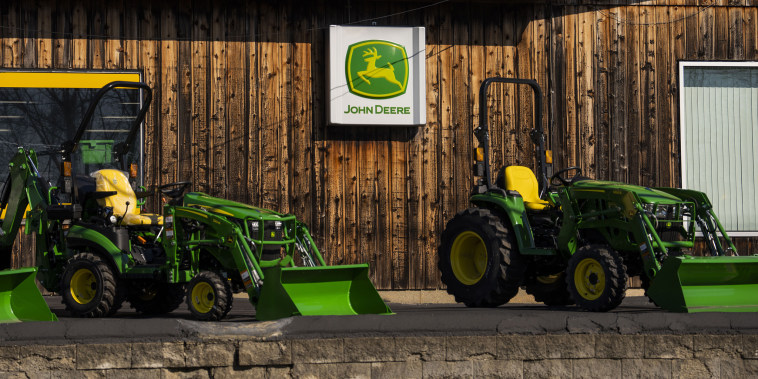
John Deere’s Pride Sponsorship Hits Roadblock Due to Online Backlash
In a surprising turn of events, John Deere, the renowned agricultural machinery manufacturer, has announced its decision to withdraw from sponsoring Pride festivals following substantial pressure from online right-wing groups. This move has stirred controversy and raised questions about the intersection of corporate sponsorships and societal values.
The decision by John Deere to distance itself from sponsoring Pride events has sparked mixed reactions from various quarters. While some applaud the company for aligning itself with conservative voices, many in the LGBTQ+ community and their allies express disappointment and have raised concerns about the potential implications of this action.
It is crucial to understand the context in which John Deere made this decision. The company faced relentless online pressure from right-wing groups who expressed their disapproval of the organization’s support for events celebrating the LGBTQ+ community. This pressure campaign highlights the power of social media and online activism in influencing the decisions of corporations.
John Deere’s withdrawal from Pride festival sponsorships raises important questions about corporate responsibility and values. In recent years, many companies have embraced diversity and inclusivity as core principles of their brand identities. By participating in Pride events, companies signal their support for the LGBTQ+ community and demonstrate a commitment to creating an inclusive environment for employees and customers alike.
However, the case of John Deere demonstrates the complex dynamics at play when corporate values clash with external pressures. The decision to abandon Pride sponsorships underscores the challenges that companies face in navigating the often polarized landscape of social issues and public opinion.
On one hand, some argue that corporations should prioritize their bottom line and cater to the demands of their customer base, even if it means disengaging from events that may be perceived as controversial. Others believe that companies have a moral obligation to stand up for their values, even in the face of backlash from certain segments of society.
The fallout from John Deere’s decision is a reminder of the delicate balance that companies must strike in today’s highly polarized climate. As businesses navigate issues of social responsibility and corporate ethics, they must carefully consider the impact of their actions on various stakeholders and the broader communities they serve.
In conclusion, the decision by John Deere to abandon Pride festival sponsorships following online right-wing pressure campaign has ignited a contentious debate about the role of corporations in promoting diversity and inclusivity. This incident underscores the complex interplay between corporate values, external pressures, and societal expectations, prompting important conversations about the responsibilities of businesses in an increasingly polarized world.
